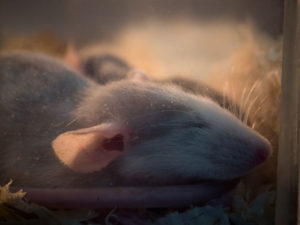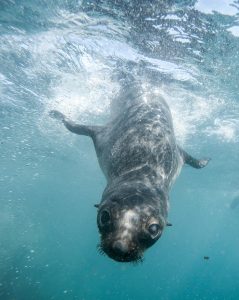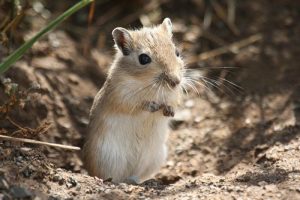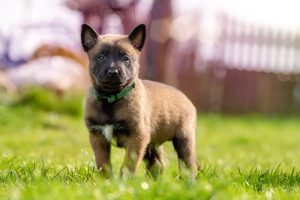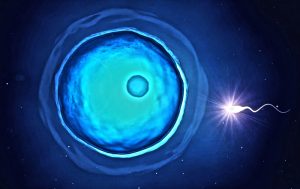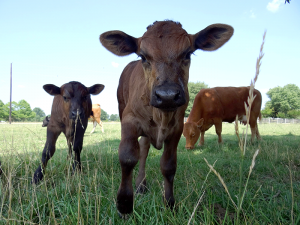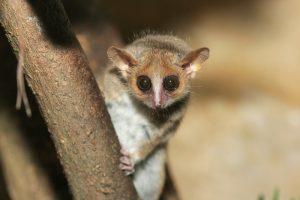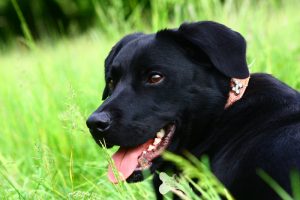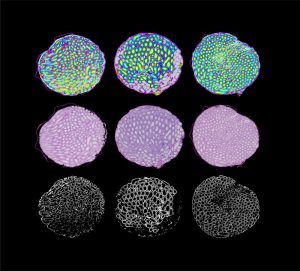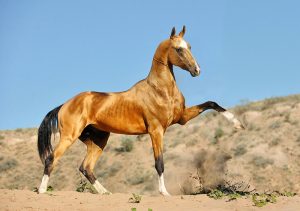Enter your address to receive notifications about new posts to your email.
Articles tagged Mammals
(23 results)
-
Early Career Leadership Spotlight: Anna Moyer
We’re taking time to get to know the members of the GSA’s Early Career Scientist Committees. Join us to learn more about our early career scientist advocates. Anna Moyer Accessibility Subcommittee University of Alabama at Birmingham Research Interest: I don’t remember very much about the birth of my little brother. I remember the way the light…
-
Sleep control gene conserved across millions of years of evolution
AP-2 transcription factors, which control sleep in flies and worms, are confirmed to do the same in mammals.
-
A look into how fur seals rebounded after overhunting
A new genome assembly for Antarctic fur seals sheds light on their historic comeback after 19th century hunting. In the late 19th century, the Antarctic fur seal was thought to be effectively extinct. After over a century of overexploitation driven by demand for the seal’s prized pelt, populations at known breeding grounds seemed to have…
-
Get outbred: Genetic diversity in laboratory gerbils
Biologists rely on animal models to answer important questions that can’t be addressed with cells in a dish. Often, these animals are deliberately inbred; a less diverse population of animals means that data obtained from experiments with these animals will be less noisy and easier to interpret, so fewer animals are needed for meaningful results.…
-
Cause of neurological disorder in Belgian Shepherds discovered
Malinois dogs are working animals known for being used by the Secret Service to guard the White House. These dogs, a subtype of the Belgian Shepherd breed, are robust, with an average life expectancy of 10-12 years. But some puppies are afflicted by a genetic condition called spongy degeneration with cerebellar ataxia (SDCA). A puppy…
-
Chemical preserves mouse fertility after radiation
After surviving breast cancer, almost forty percent of female patients are affected by primary ovarian insufficiency (POI). This condition, in which ovaries don’t produce normal amounts of hormones or release eggs regularly, can result in health problems and an inability to have children. But POI isn’t caused by cancer itself—the actual culprit is DNA damage…
-
To make an embryo, you gotta break some mitochondrial DNA
Over twenty years ago, somatic cell nuclear transfer (SCNT) let scientists successfully clone the first mammal—Dolly the sheep. Despite advances since then, the efficiency of this process remains low. In the July issue of G3, Srirattana and St. John report a method to deplete cattle donor cells of mitochondrial DNA and efficiently generate blastocysts from…
-
The mouse lemur: a new genetic model organism
Palm fronds crunch under a researcher’s foot as she hikes through a rainforest in Madagascar looking for a spot to release a tiny, omnivorous ball of fur with bulging eyes—a mouse lemur. This creature, the smallest type of primate, is an important research subject: it has just yielded a blood sample, skin cells, and an…
-
Fido won’t fetch? Maybe it’s his pedigree
Whether a thunderclap drives your dog to cower behind the couch or leaves it unfazed may be determined in part by genetics. In the June issue of GENETICS, Ilska et al. analyze genetic contributors to canine personality traits—such as fear of loud noises—using owners’ reports of their pets’ behavior. The researchers chose this survey-based method…
-
Behind the cover: Male infertility in the mouse Collaborative Cross
Fascinating discoveries sometimes emerge from the most daunting of experimental roadblocks. Designed to generate over 1,000 recombinant inbred mice lines for genetic mapping, the Collaborative Cross (CC) project unearthed astounding variation in male fertility when nearly 95% of the highly inbred CC lines went extinct. As part of the Multiparental Populations series in the June…
-
Cause of fatal naked foal syndrome revealed
When a horse is born with naked foal syndrome (NFS), it will likely die early. This genetic skin condition affects the Akhal-Teke horse breed from Turkmenistan, which is known for its speed, endurance, and intelligence. Worryingly, the incidence of NFS seems to be increasing. Although breeders have been aware of NFS for over 75 years,…



